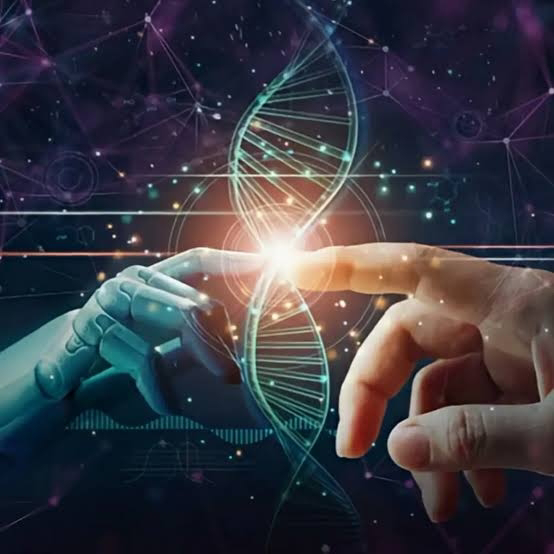Chapter 10: The Future of Evolution – The End or a New Beginning of Humanity’s Evolutionary Journey?
Chapter 10: The Future of Evolution – The End or a New Beginning of Humanity’s Evolutionary Journey?
Evolution is an ongoing process. Every moment, every minute, every second, all living beings on Earth undergo changes to adapt to their environment. However, these changes can take millions of years at times, or happen in much shorter periods. In this article, we will look into the future of humanity's evolutionary journey and perhaps speculate on whether there might be an end or a new beginning in human evolution.
Evolution: Just a Story of the Past?
Evolution is often perceived as something that happened in the past. Darwin’s theory defined evolution as a process that helps us understand the diversity and complexity of life on Earth. However, evolution is not just something that happened in the past, it is also a continuing process. Even today, evolutionary changes can be observed everywhere. Small changes in human genetic makeup, developing immunity to diseases, and adapting to environmental conditions are examples of evolutionary processes that continue at every moment.
So, where is this evolutionary process headed? Is humanity approaching a final point in biological evolution, or are the doors to much larger changes being opened? The future of human evolution is directly connected to technological advancements and scientific progress. Today, most of the changes in biological evolution are happening due to human interventions, both knowingly and willingly.
Technology and Genetic Engineering: Forces Accelerating Evolution
Evolution is mostly shaped by natural selection and genetic changes. However, today humanity is going beyond this natural process by using tools such as technology and genetic engineering to accelerate the evolutionary process. Particularly, genetic engineering has greatly increased humans' capacity to alter their biological structure.
Thanks to genetic engineering, humans now have the potential to treat genetic diseases, acquire new abilities, or modify their genetic makeup. Technologies like CRISPR allow humans to change their genetic structure rapidly and precisely. These technologies are accelerating the natural process of evolutionary changes and promise to make humans more resilient, healthier, and longer-living.
However, these advancements also bring many ethical concerns. Interfering with the human genetic structure may seem like a great leap forward to some, while to others, it could be seen as a corruption of human nature. Humanity's capacity to control its own evolution might create a situation that conflicts with the fundamental principles of evolutionary theory.
The Role of the Human Brain in Evolution’s Future
The evolution of the human brain has been the key to our species' success. However, with technological progress, our relationship with the brain seems to be starting to change. Developments in fields like brain-computer interfaces, artificial intelligence (AI), and neurological engineering hold the potential to transcend the limits of the human brain. These technologies promise to make the human brain stronger, faster, and more capable.
For example, the idea of enhancing certain brain functions through external devices could represent a new direction beyond evolution. AI systems capable of direct communication with the brain may allow humans to transfer their consciousness into the digital realm. This could be described as a form of digitalization of human consciousness and could create a whole new dimension in the evolutionary journey.
Humanity and Artificial Intelligence: An Evolutionary Revolution
The impact of technology, particularly artificial intelligence, on evolutionary processes is likely to increase. Today, AI and robotic technologies have become tools that transform human life. However, the progress of these technologies may not only serve humanity but also integrate with humans themselves.
In the future, the boundaries between humans and AI may become increasingly blurred. AI implants placed in human brains or AIs possessing human-like thought processes could signal the beginning of an evolutionary revolution. If human minds and artificial intelligence merge, the human species could transcend its biological limits and shift to an entirely different form of existence.
Limits of Human Evolution: Biological and Technological Fusion
Today, while evolutionary changes continue under the influence of natural selection, technological changes are also rapidly shaping the evolutionary process. Humans no longer have to rely solely on biological changes to adapt to their environment. Technological innovations are emerging as tools that humans use to adapt to their surroundings. Humans could gain new abilities that might accelerate evolutionary processes and even transcend biological limits.
However, the impacts of these changes on humanity will be enormous. As humans intervene in the natural processes of biological evolution, human nature will change, and the consequences of these changes for future generations remain a mystery.
The Future of Evolution: A New Human Species?
The future of evolution may not signal the end of humanity's biological evolution, but perhaps the beginning of a new chapter. With the technologies and scientific knowledge available today, evolutionary changes have become much faster and more targetable. Fields like genetic engineering and artificial intelligence could transform the human species in ways we have never seen before. This might be better described as a technological and artificial evolution rather than a biological one.
As a result, humanity stands on the brink of a great transformation in the future of evolution. Technological advancements could either accelerate biological evolution or lead to the emergence of a new human species. The human species, at the end of its evolutionary journey, might transcend biological boundaries and move toward a digital form of existence. Who knows, perhaps evolution is not only a physical transformation but also the beginning of a mental and digital revolution.








Comments